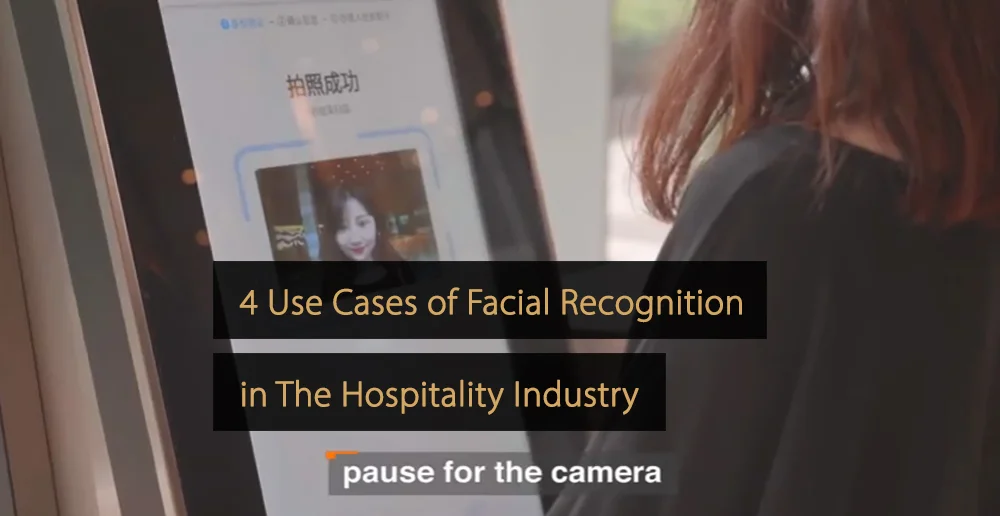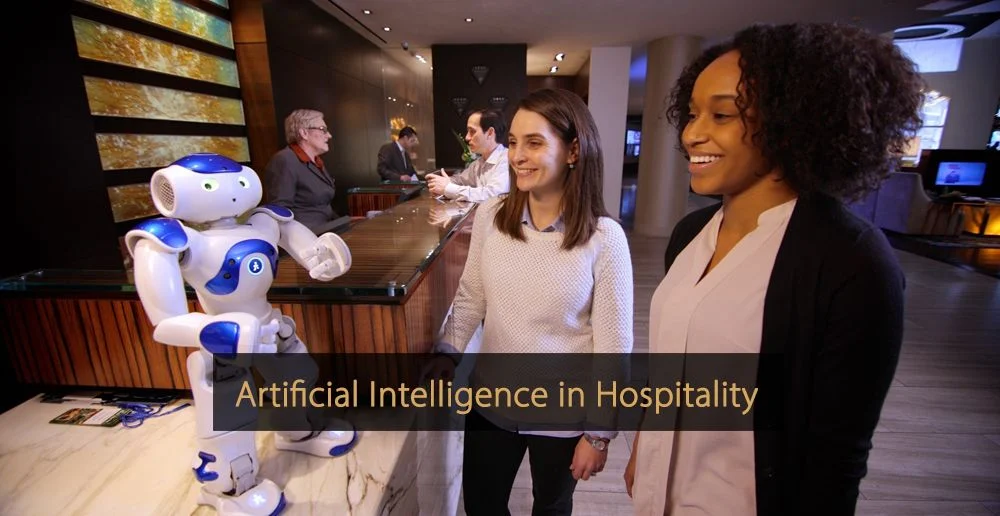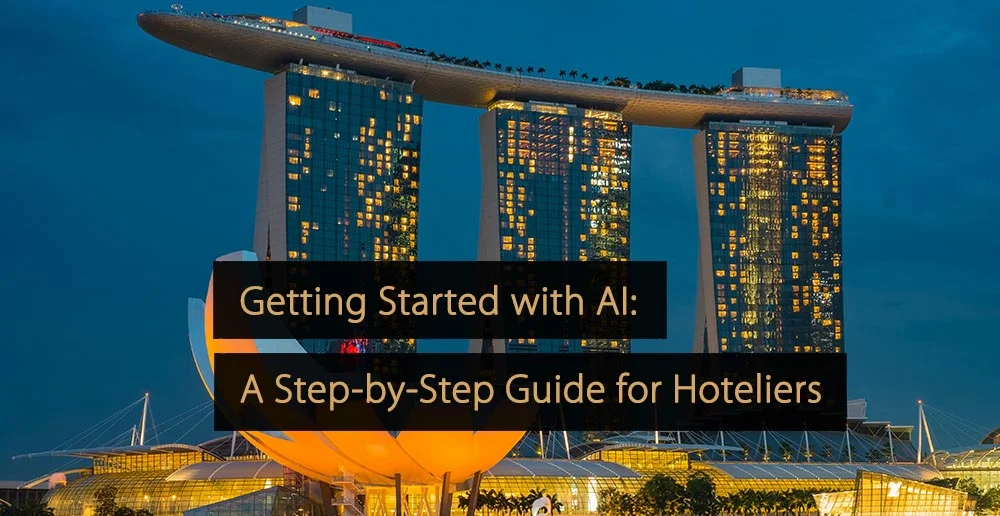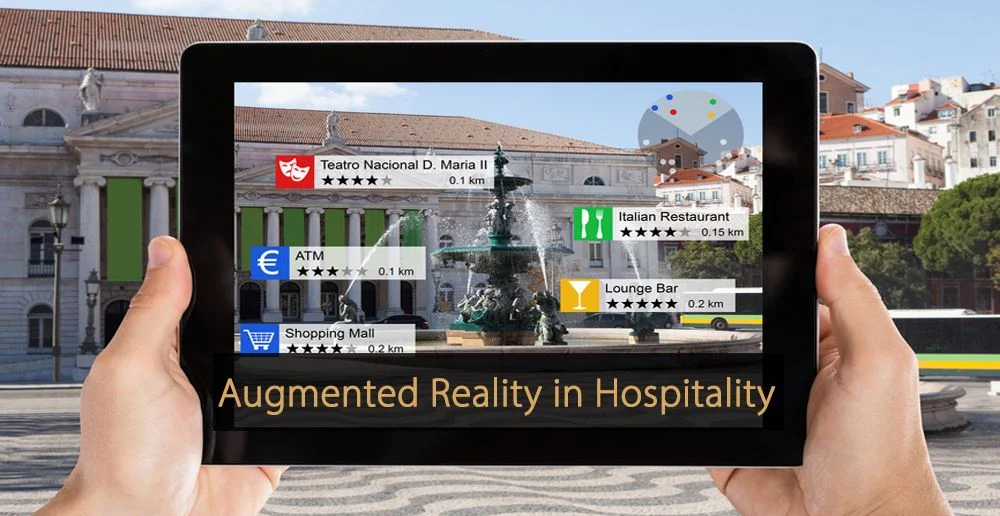Facial recognition has become mainstream in recent years, thanks to systems like Apple Face ID and Facebook DeepFace. In addition, the technology is also being used within hospitality for everything from seamless airport and hotel check-ins to delivering more personalized customer service. In this article, you will learn more about how facial recognition is being implemented and the ways it is shaking up the hospitality industry.
Table of Contents:
- What is Facial Recognition Technology?
- Facial Recognition Within the Hospitality Industry
- 4 Ways Facial Recognition Can Be Used in the Hospitality Industry
- An Example of Facial Recognition in the Hospitality Industry
- What Are the Privacy Concerns?
What is Facial Recognition Technology?
Facial recognition systems are an example of biometric technology, and can be used to identify people by analysing their faces. This is usually achieved by comparing a scanned image or a frame from a video with the faces contained within a database, matching them up based on facial features and skin textures.
The technology can also be used more generally to recognize certain things about faces, such as whether a face belongs to a man or a woman, or what age range the person is likely to be in. Facial recognition is used by security services, law enforcement, and technology companies and is becoming more prevalent in the hospitality industry.
Facial Recognition Within the Hospitality Industry
The hospitality industry deals with large volumes of customers at once. For hotel owners, airlines, and other companies, it is a top priority to deal with them efficiently, without compromising on safety. As a result, it is an ideal field for facial recognition technology to be implemented.
In particular, facial recognition systems can be used to automate certain verification or authorization processes along the customer journey, and to improve the customer experience. Moreover, identifying specific people, even in large groups, can be extremely advantageous, helping to make security systems more robust.
4 Ways Facial Recognition Can Be Used in the Hospitality Industry
1. Security and Access
One of the main ways facial recognition can be deployed within the hospitality industry is for security and access purposes. Within a hotel setting, this might mean using the technology to grant guests access to their hotel room, while in airports, it might be used in place of boarding passes and passport checks.
When it comes to security, the technology can also be vital in helping to identify troublesome guests, or guests who have previously been removed from the premises. Moreover, facial recognition can be used by law enforcement, airport security teams, and similar organizations for more critical security matters.
2. Customer Service
Those within the hospitality industry can also use the technology to deliver greater customer service. For example, facial recognition can allow employees to quickly identify guests before they even check-in and deliver more personalized greetings and a more tailored service.
If a company has a customer reward scheme, members may be given the option to upload a photo during the signup. Facial recognition can then allow that company to identify members and provide them with rewards instantly. The technology may also identify returning customers, allowing them to be rewarded too.
3. Payment Authorisation
Facial recognition also has a role in helping authorize payments, making that process more efficient. Companies like MasterCard have already implemented systems powered by facial recognition, where a customer can confirm a payment using the camera on their phone, or a camera supplied by the vendor.
In terms of how those in the hospitality sector can use this, imagine a hotel where guests go to a kiosk, check out using facial recognition, and confirm their payment in the same way, with no need to interact with a single hotel employee. Kiosks can also be used in restaurants, allowing customers to pay seamlessly on their way out.
4. Research and Information
Finally, to understand customers, improve services and optimize processes, hotels, and other companies need to be able to gather feedback and data. This is an area where the uses for facial recognition may be less immediately apparent but where those uses can be extremely beneficial.
The technology can be set up for market research purposes, helping companies to know precisely how many people are in a location at a particular time. Additionally, it can be used to conclude customers too, reading their expressions to ascertain their mood, or their facial features to ascertain their age or gender. Most impressively, this data can be gathered automatically at any time of the day or night.
An Example of Facial Recognition in the Hospitality Industry
To date, one of the most effective uses of facial recognition within hospitality management has been as part of the hotel check-in process. In two different Marriott hotels in China, for example, guests can bypass the traditional check-in desk and instead head to a kiosk. There, facial recognition technology scans their face, identifies them, and provides them with a key card, all in the space of around one minute.
#Example: Video Facial Recognition Check-in in Marriott China
What Are the Privacy Concerns?
One of the challenges for hotel managers and others in the hospitality industry looking to introduce facial recognition is balancing the benefits with customer privacy. Indeed, many people have concerns about facial recognition because it means even more data about them being collected and stored.
Furthermore, many people fear that their data will be sold to other companies against their will and dislike the idea of businesses being able to track their every move. Therefore, the hospitality industry must take these concerns seriously and take steps to avoid misusing data. In some cases, one of the best solutions may be to make facial recognition an opt-in or opt-out service so that users can choose.
Facial Recognition Hospitality Industry FAQs
Facial recognition technology can help hotel owners and others in the hospitality industry improve the customer experience, make processes more efficient, and enhance security. In particular, it allows for queues to be avoided, check-ins to be automated, and security and research to be more comprehensive.
Did You Like This Article About Facial Recognition in Hospitality Industry?
You might also be interested in the following articles:
- How to Use Artificial Intelligence in the Hospitality Industry
- How Augmented Reality is Transforming the Hospitality Industry
- How Virtual Reality (VR) Can Enrich the Hospitality Industry
- Examples of Robots Being Used in the Hospitality Industry
- Blockchain Technology and Its Uses in the Hospitality Industry
- How the Internet of Things (IoT) Can Benefit the Hospitality Industry
- How Can Voice Control Benefit the Hospitality Industry?
- Smart Hotel; What Are the Benefits for Hotel Owners and Guests?
More Tips to Grow Your Business
Revfine.com is the leading knowledge platform for the hospitality and travel industry. Professionals use our insights, strategies, and actionable tips to get inspired, optimize revenue, innovate processes, and improve customer experience.Explore expert advice on management, marketing, revenue management, operations, software, and technology in our dedicated Hotel, Hospitality, and Travel & Tourism categories.
This article is written by:
Hi, I am Martijn Barten, founder of Revfine.com. With 20 years of experience in the hospitality industry, I specialize in optimizing revenue by combining revenue management with marketing strategies. I have successfully developed, implemented, and managed revenue management and marketing strategies for individual properties and multi-property portfolios.









Very informative article. Before reading this blog, I didn’t know a lot about facial recognition technology within the hospitality industry. It is very interesting. I will share these ideas within my network. Thank you for publishing this article.